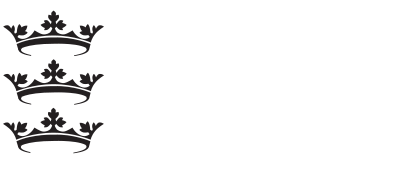Private Fostering
A privately fostered child is a child or young person under 16 years (or under 18 years if they are disabled) who is being cared for and is living with someone else for more than 28 days who is not a parent or relative such as -
- grandparent
- brother
- sister
- uncle
- aunt
- stepparent
- a person with legal parental responsibility for the child. This may have been a private arrangement made between you and the parent.
Private fostering does not mean a child is looked after by the local authority.
Private fostering could include -
- children sent to this country for educational or health opportunities including cultural exchange students staying for a period more than 28 days
- children living with a friend's family as a result of separation, divorce and disputes at home
- teenagers living with the family of a friend
Notifying us of a private fostering arrangement
Under the Children Act (1989) parents, carers and professionals must tell the local authority's social services department about the arrangement at least 6 weeks before the arrangement is due to begin or as soon a child living under this arrangement is identified (this could be by a professional involved with the child such as a teacher/nurse/GP).
We take responsibility for supervising the welfare of the child who is privately fostered seriously and are unable to do this if we do not know where or who the child is living with. A private fostering assessment will commence following a notification about the arrangement.
If a private fostering arrangement is being put in place or has been identified as already being in place, you must notify the Hull City Council's Children's Services via the Early Help and Safeguarding Hub (EHASH).
You can do this either -
- Via the online Portal CYP Hub select either professional or member of the public then the private fostering link
- Complete the notification below and email EHASH@hullcc.gov.uk
- you can ring EHASH if you need advice 01482 448 879
Statement of purpose
It is a requirement for all local authorities to publish a statement of purpose in relation to private fostering. This statement of purpose sets out to explain Hull City Council’s duties and functions in relation to private fostering and the ways in which this is conducted.
It aims to meet the requirements as outlined in the 1989 Children Act, the National Minimum Standards for private fostering which came into force on 18 July 2003 and the Children (private arrangements for fostering) Regulations 2005.
Access our statement of purpose here
Best care
For you to provide the best possible care for the child you must have a clear understanding from the child's parents about their -
- health
- education
- religious
- ethnic and cultural needs
As a private foster carer, you have an obligation to tell us when the child is leaving your care. We may ask you why the child is leaving and ask for a forwarding address of the person who is looking after the child or young person.
Help and support
Private foster carers can get advice and support. Once you have told us about the arrangement a social worker will contact you and make arrangements to visit you so that the assessment can be explained and begin. This ensures the arrangements made are in the best interests of the child.
If the arrangement is to continue, we have the responsibility to provide -
- suitable support
- help
- supervision throughout the private fostering arrangement
Training may also be offered to help you from the Fostering Service.
Government legislation and guidance
Legislation and guidance relating to private fostering is available on the Hull Safeguarding Children's Partnership (HSCP)
The Hull Safeguarding Children Board website covers -
- The Children (Private Arrangements for Fostering) Regulations 2005
- Replacement Children Act 1989 Guidance on Private Fostering
- National Minimum Standards for Private Fostering
Looking after someone else's child
If you have a child living with you who is under the age of 16 and not related to you, you need to inform us.
When someone is looking after a child who is not the parent or close relative, this is called private fostering.
If the child is living with you for more than 28 days this is called a private fostering arrangement and by law you need to tell us.
You might be -
- a friend of the child's family
- someone willing to care for the child of a family they don't know
- relatives not mentioned in the list below (this means a blood relation for example a cousin or great aunt)
Relatives who are not classed as private foster carers -
- parent
- brother or sister
- aunt or uncle
- grandparent
- stepparent
- guardian or person with parental responsibility
